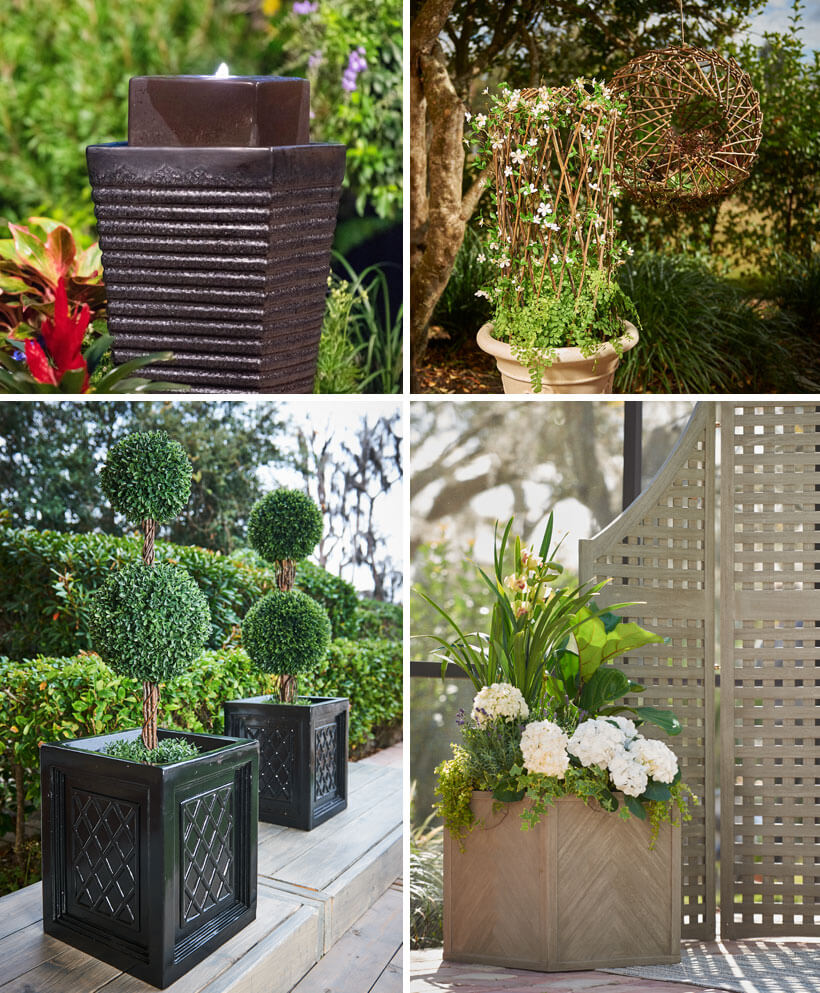Table Of Content

The placement of rocks within the garden is carefully considered to create a sense of balance and harmony. Your Zen garden is a reflection of your journey toward inner peace and mindfulness. It’s a space that grows and evolves with you, a sanctuary where you can explore your thoughts and emotions in the quiet company of nature. The process of designing, creating, and maintaining your garden is as much a part of your meditation practice as sitting quietly beside a rock or beneath a tree. Designing and maintaining a Zen garden is an exercise in mindfulness, an act of creative expression that reflects your unique path to inner peace. This process not only results in a beautiful and serene outdoor space but also offers a sanctuary where you can reconnect with nature, meditate, and find balance in your daily life.
Garden Design IdeasGarden Ideas, Photos and Tips for Gardening at Home
Whether you seek a meditative retreat or a visually stunning landscape, these 25 zen garden ideas will inspire you to create a personal sanctuary brimming with tranquility and beauty. To create a traditional garden indoors, you don’t have to work too hard. ‘Rocks are a must when it comes to zen gardens, In traditional zen designs rocks represent large mountains. They provide an easy and minimalist centrepiece in any garden,’ recommends Anna Elkington, a home & garden expert at Melody Maison.
Landscape Rock Deals & Promotions!
Originating from Zen Buddhism, this ancient approach to landscape design has existed for over a millennia. The art of sculpted pruning adds an exquisite touch to zen gardens, transforming ordinary plants and trees into living sculptures. Meticulously shape and trim evergreens, shrubs, or bonsai specimens into elegant, geometric forms or abstract designs. One of the quintessential elements of a zen garden lies in the intricate patterns etched into finely raked gravel or sand.
Rock Gardens: A Study in Simplicity
For those seeking greater relaxation or meditation, an outdoor Zen garden is not the only option. Indoor rock gardens have been popular for quite some time, especially when paired with modern architecture. There’s something poetic about creating a hidden alcove of meditation where no one would think to look. And since Zen gardens focus on dry landscaping over lush plant life, you don’t need to worry about poor light or drainage. Containers are a wonderful alternative to in-ground planting. Plus, you can place planters right on top of your garden’s sand or gravel without issue.
Perimeter of Plants
Japanese Zen Garden-Inspired Stores - Trend Hunter
Japanese Zen Garden-Inspired Stores.
Posted: Thu, 02 Nov 2023 07:00:00 GMT [source]
Consider using them as luminaries to light a path, or opt for only a few larger lanterns that are wisely positioned to illuminate, but not dominate, the setting. Like goldfish for grown-ups, big, brilliantly hued koi fish are both captivating and relaxing to watch. Unlike their carnival-prize counterparts, however, koi—and the pond they’ll call home—require a fair amount of attention and upkeep.
See for your self of what we have accomplished these few years in providing Japanese influenced garden design. Cherry Blossom festivals are a must-have experience if you live in or near New York. It is famous for the majestic scenery painted by the breathtaking view of the reflection of Maple trees that surround the garden. Tourists by the thousands flock together to witness the sight, especially during the fall. The garden accommodates one large standing boulder and several smaller rocks spread out. The raking pattern of the gravel signifies waves in the ocean and looks like ripples in a pong.
Experiment with different arrangements and find a design that resonates with you. The process of arranging the rocks can be a metaphor for finding balance and harmony in your own life. You can start by gently raking the gravel or sand with a wooden rake.
The sound of a water feature provides a soothing background noise which contributes to the zen nature. Winding paths and raked gravel are also found in zen gardens along with plants such as bamboo, ferns, moss and acer and bonsai trees. The art of Zen garden design transcends mere landscaping; it’s a deeply personal exploration of peace, mindfulness, and harmony with nature. Zen gardens, originating from Japan, are a masterpiece of simplicity and tranquility, designed to invoke a sense of peace and meditation.
Zen Garden with Bald Trees
Made from bamboo, they create a soothing, periodic noise which, although originally meant to deter deer, can be rather appealing. To take things one step further, opt for two tones of gravel and get creative with shapes. This example above could be interpreted as mountains jutting through clouds, or islands out at sea, but either way the result is spectacular. To keep things in place, surround your shapes with stone edging – our garden edging ideas feature is full of stunning styles.
See which site fits your Zen garden the best, depending on its size and the elements you wish to add. Whatever you decide to plant in your mini garden, make sure it’s of an evergreen variety and can thrive in shade. A bit of greenery in your Zen garden, no matter how small, can enliven it. Or you can plant a couple of succulents in a container, leaving enough room for sand in which to doodle and rake patterns. It will help unify the living space with nature and look super classy. Clear a portion of your floral garden and fill it with sand or gravel, like in the image above.
11 Front Yard Landscaping Ideas to Boost Your Home's Curb Appeal - Better Homes & Gardens
11 Front Yard Landscaping Ideas to Boost Your Home's Curb Appeal.
Posted: Fri, 23 Feb 2024 08:00:00 GMT [source]
These trees, with dark green and golden foliage paired with stone boulders and shrubs. Create a zen-inspired pathway in your backyard using gravel and stone. Did you know you could construct such an alluring zen garden under the staircase? This one is perfect for utilizing underutilized spaces in your home.
A simple way is to create a tabletop sand garden that you can rake into patterns to ward off stress. Arrange a few pebbles, some piled stones, and a plant or two, and your Zen box is ready. Fill it with sand and pebbles and plant some slow-growing greenery in it. Traditional Zen gardens were designed to help monks to meditate and reflect. And there's no reason why your garden can't offer a similarly peaceful place for our own meditation and wellbeing. They also provide a focal point for your garden which you can fan your other ideas around.
You can buy a basic inflatable hot tub for between £300-£500, with off-the- peg designs in fibreglass or acrylic costing between £2,500-£4,000, depending on design. You're looking for planting that works wonders without feeling too 'done'. Create a sense of wilderness by planting grasses that don't feel too styled, yet offer a generous canopy of coverage. 'So think about using a small area of your garden, perhaps the side access. The freestanding arch is commonly made of metal, wood or stone and should echo the simplicity of this type of garden. Most Torii archways are painted red because it is believed this will ward off evil spirits, which you can do too if you wish to follow the tradition.
Water features, such as small ponds or fountains, can also be incorporated into your Zen garden. The sound of flowing water can have a calming effect and create a peaceful ambiance. Consider adding water lilies or other aquatic plants to enhance the natural beauty of the water feature. The main purpose of a Zen garden is to create a space for mindfulness and reflection. The carefully selected elements in a Zen garden, including the rocks and gravel, are meant to symbolize different natural elements, such as mountains, islands, or flowing water. Position these stone compositions amidst raked gravel, moss gardens, or water features to create a visually striking yet serene landscape.
'The placement of the dry river is important – it must be arranged to run from east to south to west, as this is the traditional Japanese positioning,' she adds. Billowing borders in eye-catching colors may be the stalwarts of other garden design ideas, but Zen gardens follow a more simplistic approach. Often, carefully positioned rocks and pebbles are the stars of the show in these peaceful Japanese garden ideas. Planting is kept to a minimum, or at least to a minimal palette.

No comments:
Post a Comment